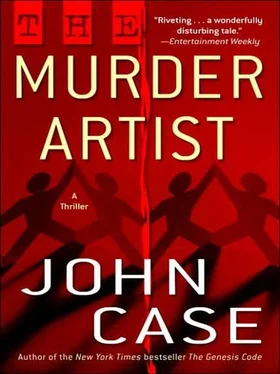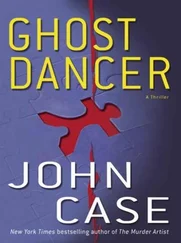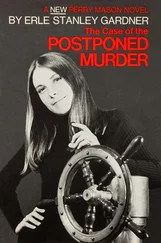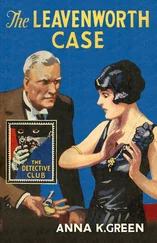“Is he in custody?” Liz asks. “Does he know where the boys are? Can we talk to him?”
“We’ll know for sure about him real soon,” Shoffler says, “but like I said, Mrs. Callahan, I don’t think he’s involved. I just didn’t want the press to spring this on you. Wanted to make you aware.”
I know from the snuffling sound that Liz is crying again.
“I’ll be by sometime today,” Shoffler tells us.
“Jesus,” Liz’s father says as he plunges through the front door. “They’re like a pack of vultures. Where’s my daughter?”
She comes through the door from the kitchen, gives a little cry, and then he takes her clumsily into his arms, patting at her shoulder. “Liz,” he says, “it’ll be all right. You’ll see.”
After a minute, they separate and he extends his hand to me. “Alex,” he says. “Hell of a thing.”
“Thanks for coming, Jack.” It’s an effort to address my father-in-law by his first name. What comes naturally is “Mr. Taggart,” a form of address that the man himself, with his parade-ground posture and stiff manners, might prefer. Jack is a high-school principal. He’s conditioned to expect deference from anyone younger than he is.
It is Liz who either mistrusts or fails to grasp her father’s profound sense of formality, Liz who insists on the tokens of chummy intimacy. On their own, the boys would call Jack “Grandfather” and greet him with handshakes, but when Kevin and Sean were toddlers, Liz decreed that they should call him “Poppy.” She insists on this, and also mandates hugs and kisses. To please her, everyone complies – but only when she’s present. She looks on now, frowning, as her father and husband engage in something that – were it not so brief – might be called an embrace.
“Marguerite – this thing was just too much for her,” my father-in-law says, stepping out of our statutory hug. He shakes his head, disappointment with his wife clear on his strong features. “High-strung,” he mutters, “but” – he claps his hands together – “she’ll be fine.”
Marguerite Taggart is a sweet and warm woman, the yin to Jack’s yang. Now she’s under sedation in the MidCoast Medical Center in Rockland, Maine.
Liz may have wanted her dad to stay with her mother, but I can see that she’s buoyed by Jack’s presence. Jack Taggart is one of those supremely self-confident men who believes he can do anything. This clearly includes finding his grandchildren. He truly believes that once events have been placed in his capable hands, he can promise a positive outcome. It’s irrational to put faith in Jack’s can-do attitude, but Liz is not alone in finding comfort in his presence. I feel it, too.
My own parents are scheduled to arrive about an hour after Jack. I’d pick them up at the airport, but Shoffler and the search unit are due to come by and I don’t want to leave Liz here to deal with them. On the other hand, although Jack blew through the crowd with no problems, my folks lack his imperious presence. They’ll be swallowed alive.
When Dad calls from baggage claim, I suggest he tell the cab to come the back way. All these old blocks in Cleveland Park have service alleys that run parallel to the streets. “I’ll unlock the gate.”
“Okeydoke,” my dad says. “Hey, I see the bags. We’ll be there in a jiffy.”
The plan doesn’t work. My parents’ arrival is heralded by a stampede from the front of the house to the end of the block and then down the alley and into our backyard. From inside we can hear the pounding feet, the ruckus of shouted questions. Jack and I rush out the back door, finding my mother – whose manners do not permit hanging up on a telemarketer – engulfed by reporters and microphones. A blonde with a predatory smile has seized Mom by the arm and wields her huge microphone like a weapon. With a deer-in-the-headlights expression, Mom’s doing her best to answer questions. A few feet from the gate, Dad, grim-faced and tight-lipped, is trying to get through the crowd with his suitcases.
“Any word on the boys’ welfare?”
“Were the boys upset over their parents’ separation?”
“What about the suspect?”
“Was it a contentious separation?”
Once they spot me, the crowd of reporters abandons my parents and converges, circling in fast and instinctively cutting off exit routes, like a pack of dogs. The four of us barely avoid being trapped, blocked from reentering the house.
“Good Lord,” my mother says once we’re inside, letting out a weird little giggle. Her eyes are slightly out of focus, and when we hug each other, I realize she’s out of it, so zonked on Xanax she feels boneless in my arms. Dad gives me a buck-up abrazo, but looks terrible. “We’ll find them,” he says firmly, but his voice is tinny and unsubstantial.
“We will,” I say. “We will find them.” Listening to myself, my voice forced but full of conviction, I realize I’m falling into a weird form of magical thinking. If only I can get the right tone and – like Jack – speak with unassailable assurance, what I say will come true.
Late that afternoon, we stand just outside the front door, elevated a few steps above the jostling crowd of reporters and cameramen. There’s a forest of microphones, a sea of cameras. The hubbub of human voices rises and falls, supplemented by the mechanized chatter of the cameras. The lights flicker in their own crazed rhythm.
Liz stands next to me, flinching from the noise and dazzle. “I’m Alex Callahan,” I begin. I plead with whoever has taken Kevin and Sean to return them, I plead with the public to be our eyes and ears, to call the hotline with any information.
I realize too late that I should have insisted Liz do most of the talking. Even to me my voice sounds polished and composed – my on-camera voice. I try to project my honest civilian desperation, but it doesn’t work. I’m left with a feeling that I know quite well. It’s hard to predict on-camera interviews, who will come off, and who doesn’t work. Today, I fit into the second category. I’m left with the perception of having given a performance, and not a particularly good one.
Liz makes up for it. She can hardly manage a sentence without breaking down in the middle of it, but she goes on anyway, a forced march of bravery so moving I spot the glitter of tears in the eyes of some of the female reporters. At the end, she speaks directly to the boys. “Kevin? Sean? If you’re watching… hang in there, guys. We love you. Daddy and I… we just love you… so much. And we’re going to find you! Wherever you are. I promise! We’ll come and find you. You just… hang on.”
That’s it, she’s wrecked, she can’t go on. She turns hard into me, ramming her face into my chest, crossing her arms over the top of her head as if she’s expecting a physical blow. She sags against me, and I realize after a moment that I’m actually holding her up. Reporters continue to shout questions and the cameras continue their disorienting barrage of light as I half drag my wife back in through the door to our home.
It doesn’t feel like much of a sanctuary.
Fortunately Liz is asleep when the two K-9 officers arrive at the door. Their task is to pick up an assortment of Kevin and Sean’s dirty clothes, including the sheets from the boys’ beds. Duchess – who wears an intricate leather harness – sits at her handlers’ feet, breathing heavily while they divide the clothing into two plastic bags.
“Why are you doing that?” Jack asks, indicating the two bags. “Is one bag supposed to be Kevin’s stuff and the other one Sean’s? Because I think you got things mixed up.”
“Not exactly,” the policewoman replies.
“Well?” Jack demands.
She strokes Duchess. “There’s another dog,” she says, almost in a whisper. “Corky. Another handler works him.”
Читать дальше












